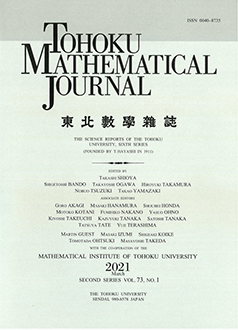Abstract
Construct a probability measure $\mu$ on the circle by successive removal of middle third intervals with redistributions of the existing mass at the $n$th stage being determined by probability $p_n$ applied uniformly across that level. Assume that the sequence $\{p_n\}$ is bounded away from both $0$ and $1$. Then, for sufficiently large $N$, (estimates are given) the Lebesgue measure of any algebraic sum of Borel sets $E_1,E_2,\ldots,E_N$ exceeds the product of the corresponding $\mu(E_i)^\alpha$, where $\alpha$ is determined by $N$ and $\{p_n\}$. It is possible to replace 3 by any integer $M\geq 2$ and to work with distinct measures $\mu_1,\mu_2,\ldots,\mu_N$.
This substantially generalizes work of Williamson and the author (for powers of single-coin coin-tossing measures in the case $M=2$) and is motivated by the extension to $M=3$.
We give also a simple proof of a result of Yin and the author for random variables whose binary digits are determined by coin-tossing.
Citation
Gavin Brown. "Symmetric Cantor measure, coin-tossing and sum sets." Tohoku Math. J. (2) 62 (4) 475 - 483, 2010. https://doi.org/10.2748/tmj/1294170342
Information





